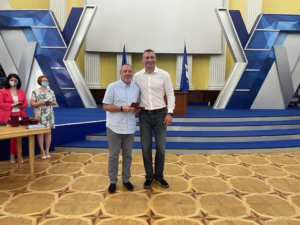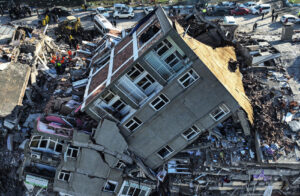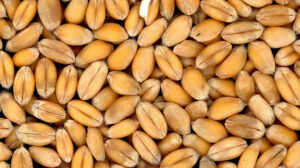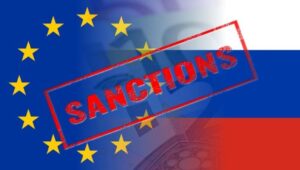
Ukraine needs to strengthen protection of energy facilities before the next heating season and carry out work to decentralize the energy sector, Ukrainian President Volodymyr Zelensky said in a video address on Sunday.
“We are working through all scenarios and will do everything to approach the next winter ready for any threat. In six months, our power engineers, officials, the security and defense sector and everyone involved in the relevant tasks must do absolutely specific things,” he said.
According to the president, it is necessary “to strengthen the protection of power facilities, to restore the infrastructure that has been destroyed by Russian strikes in the past six months, to give more opportunities to our people under the power system decentralization project, so that people can generate and supply electricity on their private territory, on their private facilities. This is a big job; it has already begun.

The Kiev Municipal Clinical Oncology Center received about 30,000 patients in 2022.
As acting director of the oncology center Alexander Klusov told the agency, the clinic was able to restore the patient flow that fell after the start of the full-scale invasion of the Russian Federation as early as July 2022.
“In 2022, we had about 30,000 patients, only 6,000 fewer than in 2021 and actually comparable to what we had two or three years ago. Understandably, since the beginning of the active invasion, we have tried to discharge all patients except those who were in serious condition and needed inpatient medical care. The number of patients was not reduced many times as it is now in many medical institutions. We can say that we have already reached the pre-war level in July”, – he said in an interview to “Interfax-Ukraine”.
At the same time Klusov pointed out that during the last year the number of patients who come to the clinic from other regions decreased a little.
At the same time, the center actively provides medical assistance to internally displaced persons (IDPs), who can receive medical care at the oncology center as well as Kyiv residents.
“We understand migration processes and try to provide medical care to everyone who needs it,” he said.
At the same time, Klusov noted that “the reform of the healthcare system allows specialized medical institutions not only to work, but also to develop.”
“We even buy diagnostic and therapeutic equipment, and our salaries are among the highest among the medical institutions of Kiev. Of course, we have the opportunity to use the funds from two budget programs – state and local budget programs, including the purchase of chemotherapy drugs. This is a very serious help, because the purchase of chemotherapy drugs requires significant resources,” he said.

The number of victims of earthquakes that occurred in early February in the south-east of Turkey has reached nearly 46 thousand people, the country’s Interior Minister Suleyman Soylu said.
“So far, 45,968,000 people have died as a result of earthquakes, including 4,267 Syrians,” Anadolu Agency quoted him as saying.
A magnitude 7.7 earthquake hit Turkey on the night of February 6, followed by a series of echo pushes, one of which had a magnitude of 7.6. The earthquake also caused serious damage and casualties in neighboring Syria.

Turkish Foreign Minister Mevlut Cavusoglu said the country’s authorities are working hard to extend the Black Sea grain initiative, Reuters reported.
“We are working hard for the smooth implementation and further extension of the Black Sea grain deal,” Çavuşoğlu said, speaking at a UN conference in Qatar.
The Turkish diplomatic chief added that he discussed efforts to extend the “grain deal” with UN Secretary-General António Guterres.
On July 22, 2022 in Istanbul with the participation of the UN, Russia, Turkey and Ukraine signed documents to create a corridor for the export of grain from the three ports on Ukrainian territory – the Chernomorsk, Odessa and Yuzhny. At the end of February, it was reported that the volume of exports of Ukrainian food products within the framework of the grain deal exceeded 22 million.
The initiative expires on March 18 this year.

The next day in Ukraine is expected to be moderately cool weather, light snow in places, and icy roads.
According to the Ukrhydrometeocenter, on Monday, March 6, in the western and northern regions, there will be light snow (in some places during the day), icy spots on roads, and the rest of the territory without significant precipitation. Wind is southwest, west, 7-12 m/s.
The temperature at night is 1-6°C cold, during the day 1-6°C, in the south up to 9°C.
Intermittent snowfall in Kiev on Monday. The wind is southwest, 7-12 m/s. The temperature at night is 2-4° frost, while during the day it may be 2-4° warm.
According to the Central Geophysical Observatory. The highest daytime temperature of March 6 in Kiev (17.4°) was in 1995, the lowest at night (-16.7°) in 1964.
Tuesday night, March 7, precipitation is light (moderate in Transcarpathia and the Carpathians) in the western regions and in Ukraine, except in the south, during the day.
Wind is southwest, 5-10 m/s. The temperature at night is 1-6°C frost, during the day 2-7°C; at night about 0°C in the south and Transcarpathian region, daytime 6-11°C in Odessa and the Crimea, up to 15°C.
In Kiev, on Tuesday, there are no precipitation at night, while during the day in some places there are light precipitation, mostly in the form of rain. The wind is south-west, 5-10 m/s. The temperature at night is 1-3° frost, while during the day it is about 5° warm.

Trade between the European Union and Russia has fallen significantly since Russia’s invasion of Ukraine, especially noticeably in recent months, the EU statistics office (Eurostat) reported Friday.
Russia’s share of EU imports fell to 4.3 percent from 9.5 percent between February and December 2022, according to the statistical data. During the same period, Russia’s share of EU exports fell to 2 percent from 4 percent.
The EU’s trade deficit with Russia peaked at €18.2 billion in March 2022 and then gradually declined to €6.0 billion in December 2022. The value of imports from Russia during this period fell 53% to €10.3 billion from €21.8 billion.
Eurostat notes that “as Russia gradually replaced other trading partners, its share of EU imports fell across six key commodities. Among them, the largest drop was recorded for coal (to 22% in 2022 from 45% a year earlier), natural gas (to 21% from 36%), fertilizers (to 22% from 29%), iron and steel (to 10% from 16%).